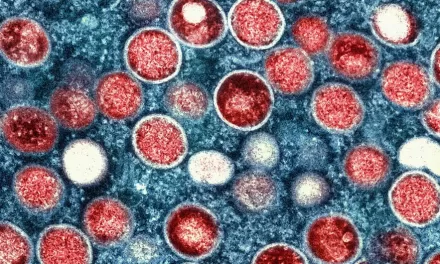In a new warning, doctors have linked the tightly tied waist cords of saree underskirts, or petticoats, with the development of chronic skin ulcers and, in some cases, skin cancer. Published in BMJ Case Reports, the findings highlight a condition now known as “petticoat cancer,” which has arisen in women wearing sarees in rural parts of India.
The research centers on two case studies of women over 60 who developed Marjolin ulcers—a rare form of squamous cell carcinoma—after decades of wearing sarees tightly fastened around the waist without a proper underskirt. Marjolin ulcers are aggressive skin cancers that usually form in chronic wounds, non-healing ulcers, or scars.
Chronic Pressure Leading to Cancer
According to the researchers, long-term pressure and friction from tight waist cords can cause chronic inflammation, which may ultimately progress to cancer. In the past, similar cases have been described as “saree cancer,” but researchers clarified that the underlying issue is the tightness of the waist cord rather than the saree itself.
The first case involved a 70-year-old woman with a painful ulcer on her right flank, which had resisted healing for 18 months. A biopsy confirmed she had developed a Marjolin ulcer at the site where her petticoat’s cord was tightly tied. The second case involved a woman in her late 60s who had been wearing a “lugda” (a traditional saree style) tightly tied around her waist for four decades. The ulcer she developed eventually spread to a lymph node in her groin, signaling an advanced stage of cancer.
Experts Weigh In on Cancer Development
“The exact mechanism by which chronic wounds or ulcers become cancerous remains unknown,” the authors noted, “but evidence suggests that continuous irritation from tight clothing can increase the risk of malignancy in these lesions.” They explained that constant pressure at the waist can weaken skin in the area, leading to ulcers that may not heal due to the ongoing friction.
They emphasized that, while rare, Marjolin ulcers are aggressive and should be treated with urgency. According to the report, chronic wounds of any kind can heighten the likelihood of malignant transformation.
Patient Speaks Out on the Impact
Reflecting on her diagnosis, the 70-year-old patient shared how the skin condition began with a minor, depigmented spot that eventually worsened over six years, evolving into a non-healing ulcer. “The discomfort became a part of my daily life,” she said, describing the physical and psychological toll of her illness. “It shows the importance of paying attention to chronic skin changes and seeking medical advice early.”
Recommendations for Prevention
The doctors recommend that women avoid tying sarees too tightly around the waist and opt for looser clothing or underskirts, especially if skin irritation occurs. They also encourage early medical consultation for any persistent skin issues, highlighting the risks that can come with traditional clothing practices.
The report underscores the importance of awareness and proactive healthcare to prevent avoidable health issues associated with cultural attire, with hopes that other women will learn from these cases and avoid similar risks.
For more information: Petticoat Cancer: Marjolin Ulcer of the Waist in South Asian Women (A Site-Specific Malignancy), BMJ Case Reports (2024).












